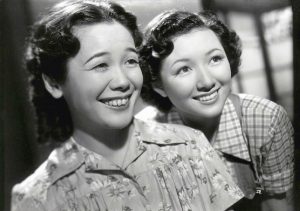
The Electoral College is an infamously complicated political system that most Americans don’t know, or at the very least, don’t know enough about. The Electoral College has been the electoral system since the beginning of America. Thanks to the Electoral College, America has given the greatest presidents America could ask for… and the worst. Republicans and Democrats alike have been fighting over this for decades. But the truth is that the Electoral College is undemocratic, unrepresentative, and outdated, and it needs to be abolished.
To explain why the Electoral College deserves to be abolished, it’s best to know what the Electoral College is. According to the articles of the Constitution, Article II, Section 1, Clause 2, provides for states to select electors to vote for the President and establishes that the number of each state’s electors will equal the number of its senators and representatives. This means that the people are not choosing who is governing them—the electors.
Democracy. A government in which the supreme power is vested in the people and exercised by them directly or indirectly through a system of representation usually involving periodically held free elections. By definition the Electoral College is not a democracy. A democracy is where the power belongs to the people. As per the constitution, the president shall be chosen by a group of electors appointed in each state. Meaning, that the people are not a part of the process that literally determines who will lead their country; the governed do not have the power to choose who governs them.
Furthermore, the more you look into it, the historical record indicates that the Founders created the Electoral College with the overall goal of creating a republic. They hoped it would produce the best possible person for the position of president of the United States. When you objectively look at what the Electoral College is and what it was made for, you can see it wasn’t made to be democratic, making the Electoral College objectively undemocratic.
To properly represent every person, the voting system should be one vote per person. This principle needs to be met in order to have a representative democracy. For example, 5 of our 45 presidents have come into office without winning the most votes nationwide. This happened in 1824, 1876, 1888, 2000, and 2016. At this rate, more and more presidents will be chosen even if they are not the ones the people want. At this rate, only a specific group of people have their votes represented while everyone else is ignored. To compromise, some states have offered a proposal called The National Popular Vote. The National Popular Vote Law will take effect when enacted by states with a majority of the electoral votes (270 of 538). Then, the presidential candidate receiving the most popular votes in all 50 states and DC will get all the electoral votes from all of the enacting states. That is, the candidate receiving the most popular votes nationwide will be guaranteed enough electoral votes to become president. If all states agreed to this law, each state’s electors would vote as per the national popular vote. However, this is also unrepresentative of the nation’s people.
A winner-take-all system where all of a state’s electoral votes just go to the popular vote discredits and completely leaves the groups that voted for other candidates in that state unrepresented. This is why the Electoral College should be dead and gone. It fails to represent its people fairly, giving some groups more votes and other groups less. A clear example is the voting power of minorities. With the Electoral College system, Black and Hispanic people represent key voting blocs in a number of states. If we abolish the Electoral College, instead of being crucial to victory in several key states, Black voters, for example, will become 10 percent of the electorate. Which is quite literally the point. Every individual’s vote should count as one per person; no more, no less. Everyone should be fairly represented, regardless of their vote or who they are.
The Electoral College was founded by the Founding Fathers soon after they won the American Revolution. Regardless, this means the electoral college was created by 7 property-owning, slave-owning white men who lived in the late 1700’s to early 1800’s. In case you haven’t noticed, things have changed drastically since then. When the founding fathers founded the government, it was based on 1700’s standards. The founding fathers set up our government with the ideals of 17th-century democratic standards. Democracy was practiced differently than it is today. Women could not vote; African Americans could not vote; and people without property could not vote. The men who wrote the Constitution were deeply mistrustful of popular opinion. The idea that Americans are uneducated is only because back in the 1800’s, public school was barely given at all.
As of the modern day, not only are the people educated, but the will of the people is to protect their lives, liberty, and property. The digital age has unveiled countless amounts of information and all of it, good or bad, is being fed to everyone. Americans know what they want in a president; they know what they want for America. Jessie Wegman of The New York Times says this best: “Not everything need be decided by majority vote. But once something is put to a vote, it is hard to understand why the side getting fewer votes should win. And Americans have long understood themselves to be voting for their president, not for presidential electors. It is long past time to get rid of the Electoral College.”
Unfortunately, the “abolishing the Electoral College” is the hard part. Abolishing the electoral system that has dominated American politics since the beginning would be extremely difficult for a multitude of reasons. First, it would require a reassessment of the Constitution, an evaluation of state rights, It would require a constitutional amendment. That means a two-thirds majority in Congress and three-fourths state approval. A two-thirds majority in the House of Representatives and Senate would be incredibly difficult to achieve, but not impossible. There is hope, and that is due to the National Popular Vote.
The National Popular Vote Compact isn’t perfect. It is still very much not representative of the American people. Fortunately, they provide a sliver of hope for abolishing the Electoral College. The National Popular Vote website states it has been accepted in multiple states. The National Popular Vote has been enacted by 16 states and the District of Columbia, including 4 small states (DE, HI, RI, VT), 9 medium-sized states (CO, CT, MD, MA, MN, NJ, NM, OR, WA), and 3 big states (CA, IL, NY). Not to mention, the bill has also passed one legislative chamber in 8 states with 78 electoral votes (AR, AZ, ME, MI, NC, NV, OK, VA), including the Republican-controlled Arizona House and Oklahoma Senate. It has passed both houses of Maine and Nevada at various times and is endorsed by 3,705 state legislators. 16 states have adopted this compact. That is 32% of all of America who would be willing to pass the bill. 32% is already halfway to all the states we need. Not only is it 32% of the states, but it is arguably also 32% of the House of Representatives and Senate. Assuming the amendment is accepted and the following states vote to abolish it completely, America will take one big leap toward a true democratic republic. However, even if this amendment gets passed, there is still one big problem.
Second, the Electoral College has 538 electors; if we were to completely eradicate the Electoral College and use the voice of the people, that 538 would turn into 330 million. Furthermore, determining a winner in a national popular vote election might even prove impossible. The 2000 election is particularly memorable since it took 36 days after the election before a winner was finally declared. If the Electoral College were to count 330 million people, the electoral process would take a very long time. However, one way to combat this is to have the polls be digital; the government could have people vote online.
Then there is the argument that voting online isn’t safe. With a national popular vote election in which fraud can no longer be ‘contained’ within the borders of a single state or a handful of states, the temptation to stuff the ballot box would be obvious. And with a national popular vote, states would likewise be tempted to increase their vote totals. Be that as it may, there are still ways to combat fraud. Delegate each state’s vote at a time. There would be no need to have every single state vote at once. The government could collect the votes of one big state as well as one small state. Another way would be to continue collecting votes digitally but have stricter restrictions and require identification to vote. There are still ways to have a just, modern system without compromising safety.
The Electoral College has dominated the American voting system for 4 centuries. Within four hundred years, there have been 5 times when a president has won outside of the people’s wants. At this rate, the government will pick the president they want. If the government only provides what they think is best for the people and does so without the permission or want of the people, then they are neither a democracy nor a republic. A democracy is of the people, by the people, for the people. A republic is where power rests with the people’s representatives. If the government is not controlled by its people or represents the people, then it is an authoritarian government. We, as a people, need to abolish the Electoral College and let the people pick who should lead them.



















